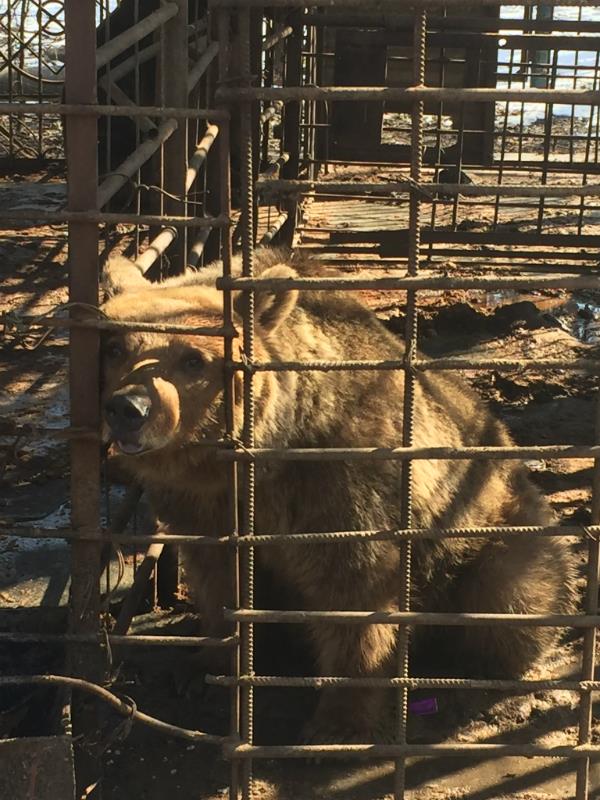The Salvation Park
For already 25 years, Armen Tadevosyan, 66, has been hurrying every morning to feed the animals in his zoo-botanical park. He tenderly embraces his animals and talks to them, filling in their bowls with food and wishing them good day, and only afterwards he does his routine deeds.
Tadevosyan himself built the zoo-botanical park in Armavir town, 45 km. distance from Yerevan. During 25 years, he created the tree cover on 8-hectare area and collected over 50 specimens of animals, kept in partial captivity conditions.
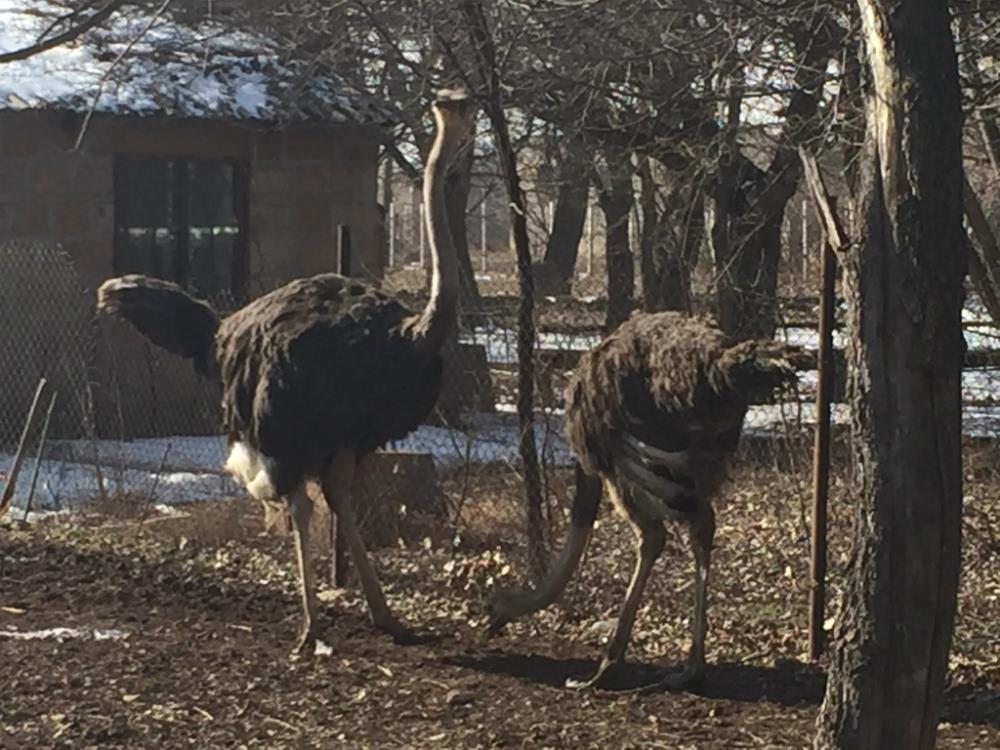
“My father, who was a hunter, laid the foundation to this park. Having returned from the army, I devoted myself to this activity. I try to place as few cages as possible in the park so that the children would be able to see animals walking on the grass under trees as if they are in the wild, Armen Tadevosyan tells. He has four children and knows the child’s psychology very well. The zoo-botanical park owner says, he has named it the “Salvation Park, because the endangered animals, who find themselves in critical conditions, can find a shelter in the park.
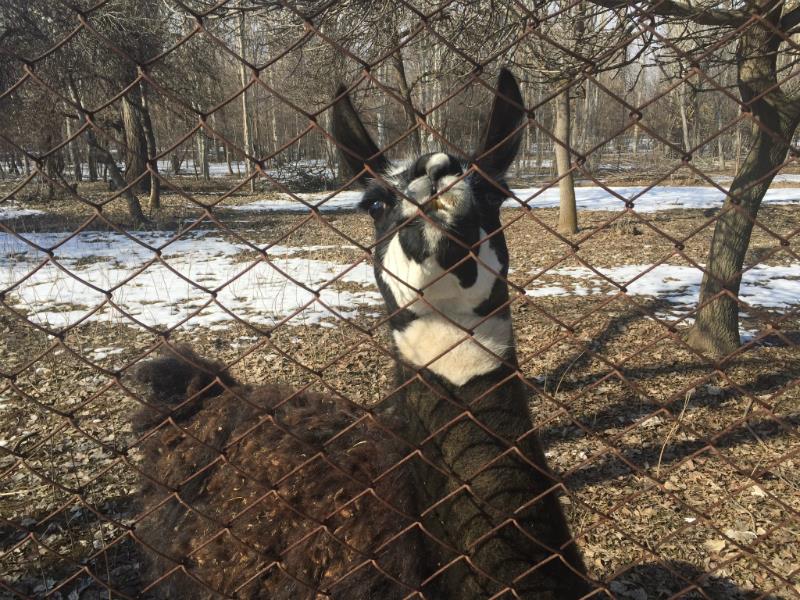
Tadevosyan honestly admits that he has bought the animals from different people, who, having learnt that he had such a park, offered him their bears, lions or monkeys. “There are many rich people, who have wild animals in Armenia. They keep them as long as they can but they get tired of it and try to get rid of the animals. Of course, it is difficult to take care of the animals, for example, if a bear’s excrements are not taken away immediately, the stench will spread far off.
Sometimes, the children of those people are presented with a lion cub for the birthday, but when they are bothered with it, they ask to come and take it.
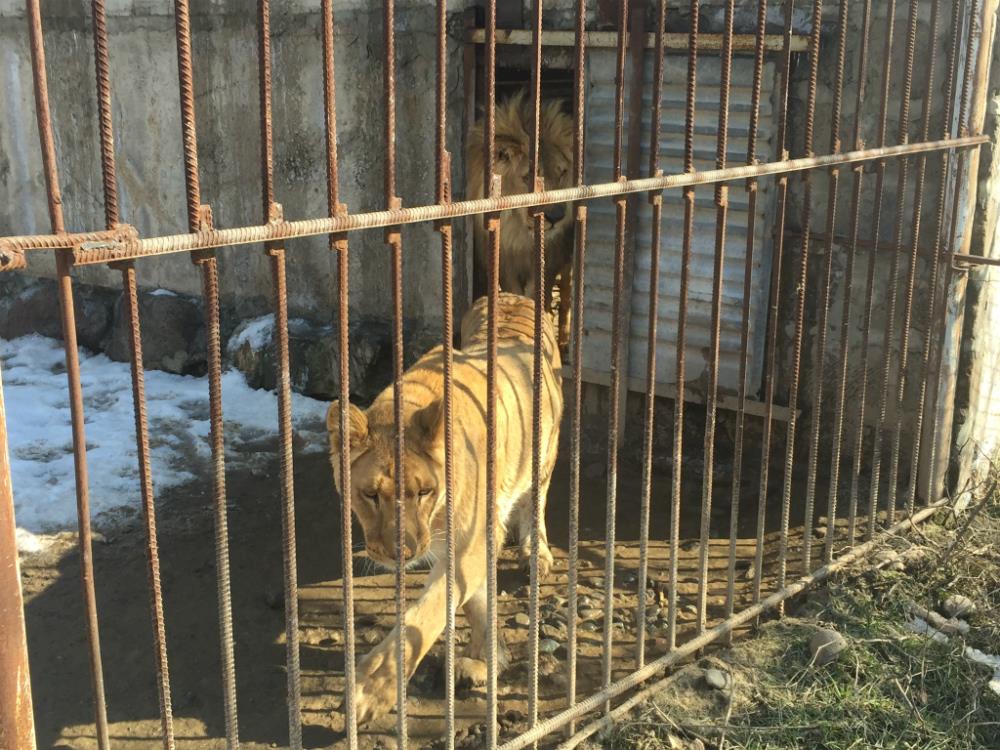
A camel, a wolf and two monkeys migrated to the “Salvation Park from Gyumri zoo two months ago. Gyumri zoo, that had functioned since 2010 and that belonged to the city ex-mayor’s brother, ceased to exist because of problems with provision of food, water and lack of the animal wintering conditions.
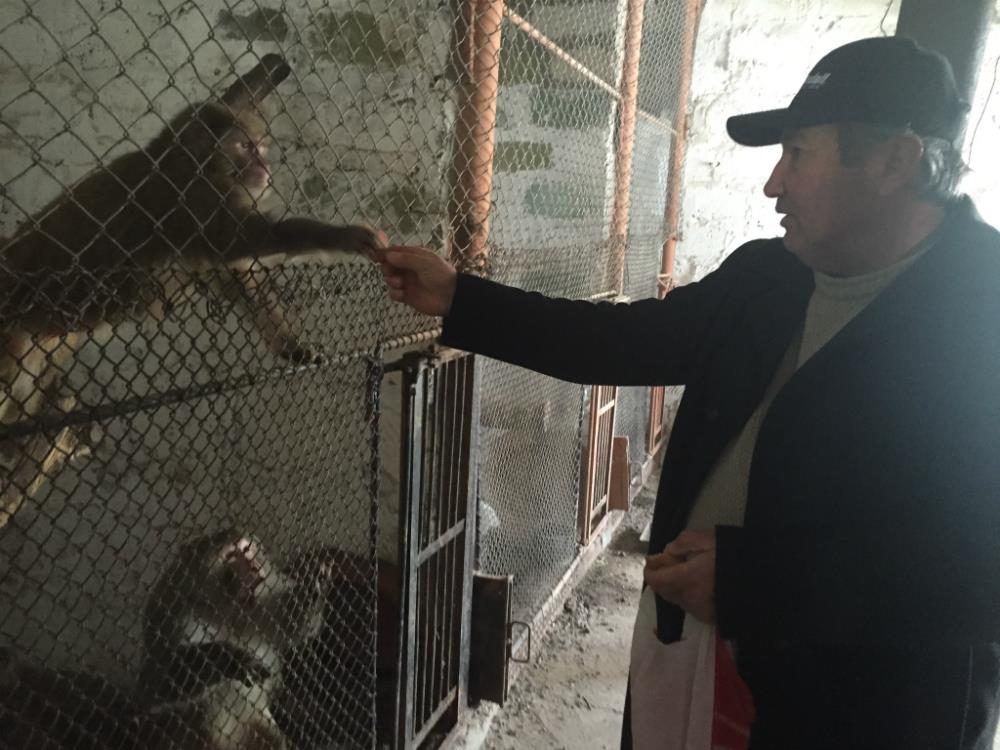
The article entitled “Inside the World’s Worst Zoo, published in the British The Daily Mail newspaper, caused a great stir around the Gyumri zoo end of January this year. The article described the conditions, the animals lived in, and presented shocking pictures showing starving bears and lions that are forced to live off slaughterhouse scraps after being abandoned by Armenian oligarch.
Armen Tadevosyan got animals, who found a shelter in the Salvation Park, in absolutely starving conditions:
“The monkey was thin, the camel could hardly walk, and his hunch almost vanished. They are gradually recovering now. The wolf was so overfed with apples that now it does not eat meat. You should see how it devours apples.
After The Daily Mail had published the article, two bears were taken to Yerevan Zoo.
 a photo from The Daily Mail page
a photo from The Daily Mail pageSilvia Adamyan, an ecologist, a member of the “Let’s Save Gyumri Zoo Animals initiative, says that in 2015, the Foundation for the Preservation of Wildlife and Cultural Assets undertook a commitment on the initiative of Armenian Environmental Network (AEN) to take the bears from that zoo to a specialized Libearty Bears Sanctuary in Romania under the condition that the bears would undergo the restorative treatment and would live there:
“At present, the bears Misha and Masha are in Yerevan Zoo, where they get necessary care and undergo veterinary examinations. Afterwards they will be transported to Romania. Brigitte Bardot Foundation will cover their transportation, treatment and feeding costs.
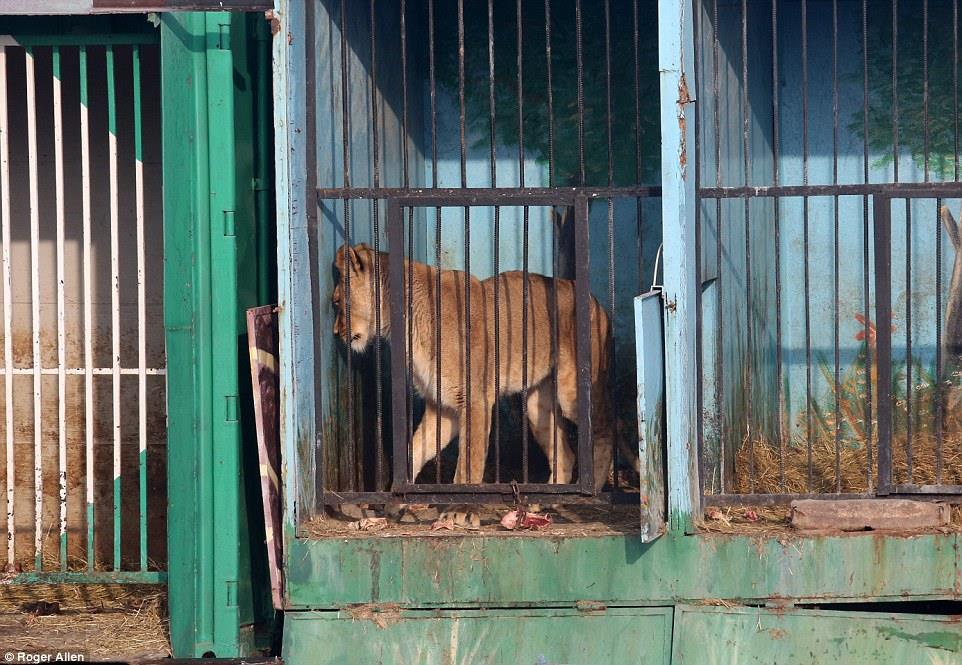 a photo from The Daily Mail page
a photo from The Daily Mail pageThree lions, including: mother Mary and her cubs Zita and Gita, are still in Gyumri Zoo.
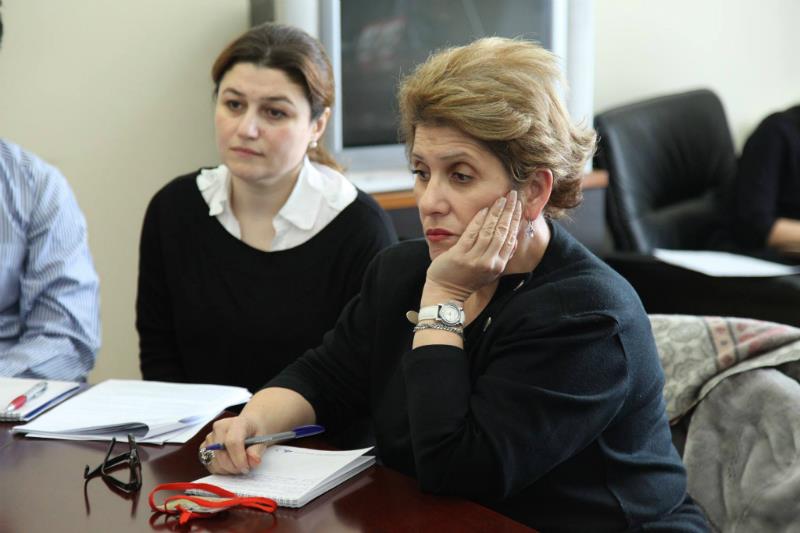 Silvia Adamyan
Silvia AdamyanAccording to Silvia Adamyan, they will be taken to the animal shelter, which is being built by the Foundation for the Preservation of Wildlife and Cultural Assets in the Urtsadzor Community, in Ararat region:
“At present, the lions undergo necessary treatment and get a professional care. They beat heads against the cage so much that they all have wound on the foreheads.
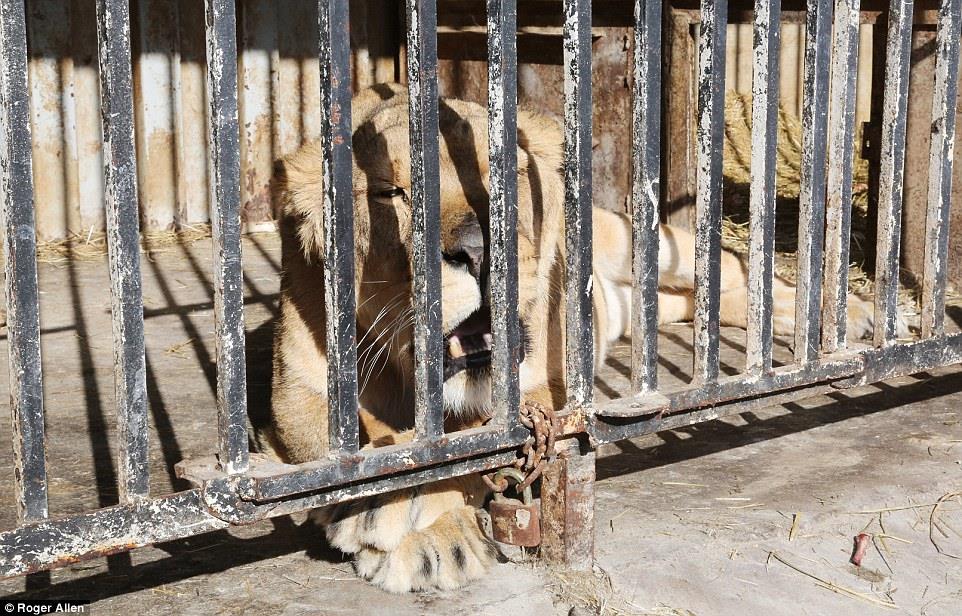 a photo from The Daily Mail page
a photo from The Daily Mail pageThe stir around the Gyumri Zoo shocked the Ministry of Nature Protection, controlling this sphere. Ecologists, in turn, are alarmed: the problem roots in shortcomings of the legislation, regulating the sphere.
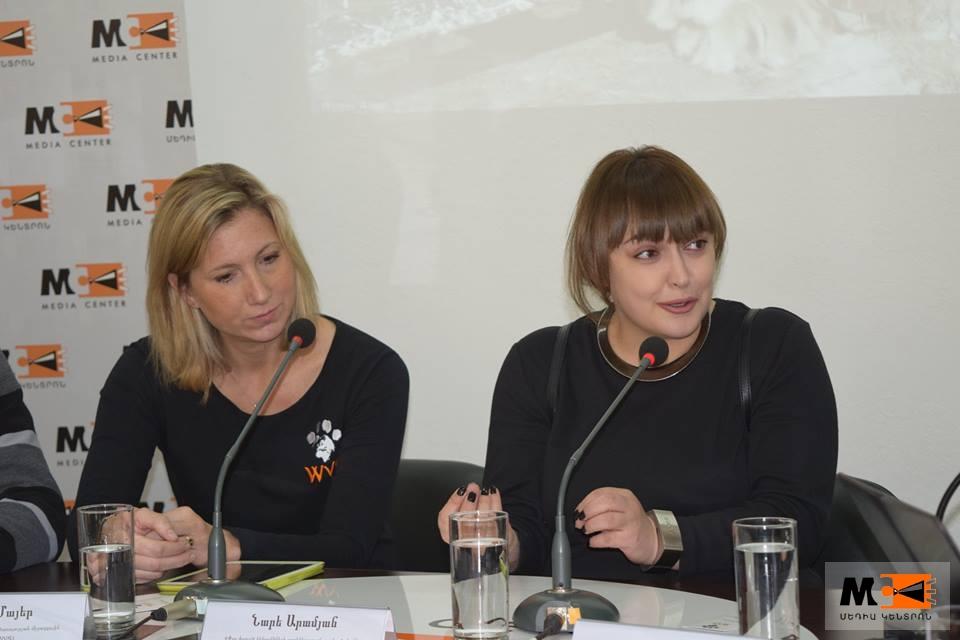 Nare Aramyan. Public Journalism Club photo
Nare Aramyan. Public Journalism Club photoNare Aramyan, an Armenian representative of the “Propose charity organization, which deals with animal management problems, noted that in 2006, they had offered a draft bill, envisaging responsible treatment of animals. Ten years have passed, but the government has not submitted any bill to the parliament yet:
“Rights of captive animals are to be protected. They should have a right to food, shelter, free behavior and must be protected from cruel treatment. There are many captive animals in Armenia, but nobody can tell how many of them are in captivity, where and on what basis they were bought, who allowed those people to carry out such activity. This is a pressing problem as it turns out that everybody can do whatever he/she likes.
Temine Arzumanyan, Spokesperson for the Minister of Nature Protection, notes that there has not been any special animal management licensing system:
“Until recently this sphere has been regulated by the Decree #725-H of the Government of the Republic of Armenia (RA) of 2009, “On Establishment of Order of Management and Use of Partially or Completely Captive Animals, Registered in the Red Book of RA. According to this decree, animals shall be kept on the territory of x square meters, with due account for certain conditions.
Sevak Baloyan, the Head of Bio-Resources Management Agency of the Ministry of Nature Protection says, the Ministry controls private zoos and their owners are fined if animal cages or other animal welfare conditions do not meet the necessary requirements:
“However, the law does not provide for zoo owners’ liability: the legislation has certain gaps and a working group has been set up to solve these problems.
Wild animals, kept in partial or total captivity, have not been registered anywhere in Armenia. The Ministry of Nature Protection has no data either on the number of animals or zoos.
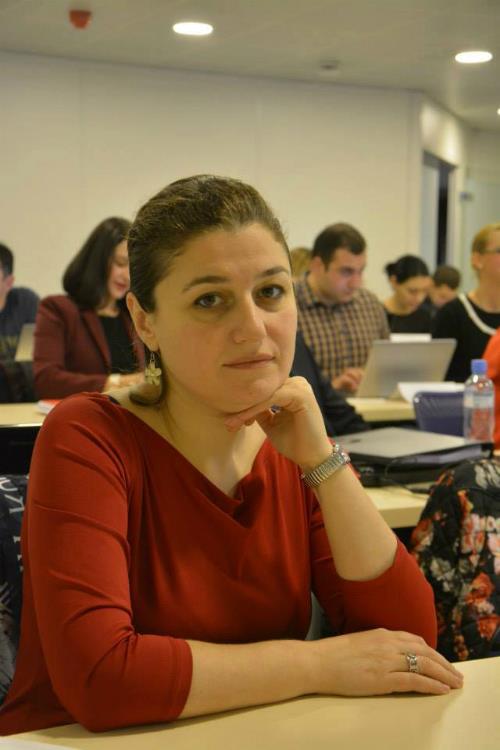 Mary Khachatryan
Mary KhachatryanMary Khachatryan, a legal adviser, who has been involved in the working group’s activity on the invitation of representatives of public organizations, explains that the Government made such decision on the basis of the Law on Hunting and Hunting Sector Management, part four Article 7 of which allows the government to make decisions on establishing the order.
“I have studied the Law on Hunting and Hunting Sector Management and saw that part four of Article 7 of the abovementioned law was recognized invalid on February 2, 2010. It means that the decision made based on this law, had been considered invalid as early as in 2010, but it has been in force and the amendments are going to be introduced to it. After all, this sphere should be regulated by the law on wildlife and amendments are to be introduced to the law rather than to the decision.
Mary suggests involving into the work the Finance Ministry, which exercises control over import and export on the border, since all ways lead to the customs:
“Naturally, a lion is not born in Armenia; it may be born in a zoo or at oligarch’s shelter, who keeps it. Armenia is also a transit country for animals. Several years ago Ebola Virus was tested on two monkeys, but nobody was made liable, it is not clear, who and how had transported the monkeys.
An exotic Jambo park, located in Dzorakhpur villag, is famous for monkeys that are kept there. Artem Vardanyan, the park director, notes that many people take and keep wild animals for the sake of their ambitions, following other peoples’ example:
“Everyone has learned about Gyumri, but I should say there are many such facilities in Armenia. I have provided maximally good conditions for my monkeys. My chimpanzees are kept in premises where it is warmer than at my home; their ration is strictly controlled – they always get fruits and vitamins. It seems to me that a person, willing to keep an animal and providing normal conditions, must be supported by the state. Otherwise, I suggest that chips should be attached to animals, so that their owners could be found and made liable. Wild animals, that are already here, must be registered.
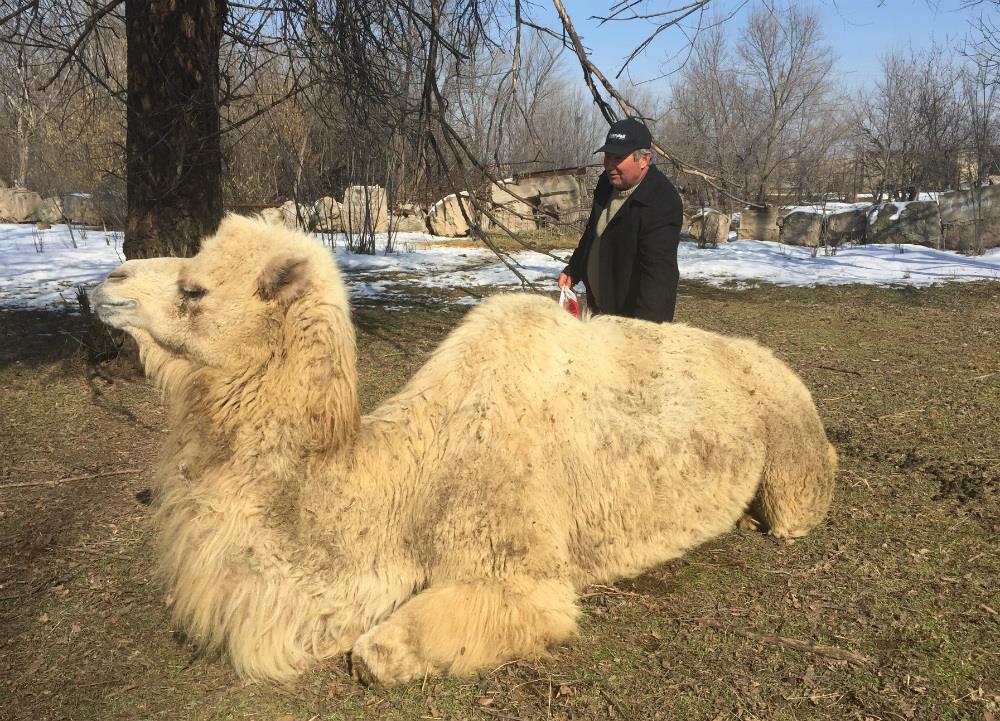
Armen Tadevosyan notes that he has dedicated all his life to animals; he has been saving them from the people, who abandon them.
He approaches the cage of two bears – Mishunya, 22, and Masha, 14. He greets them and treats them with apples.
“When Masha was brought here, she weighed 5 kg and her leg was injured. Her former owners no longer needed her. I treated and took care of her. I am not interested in the changed that are going to be introduced to the law. The main thing for me is that my animals be healthy. I love them very much and I can’t explain the reason, Tadevosyan admits.
